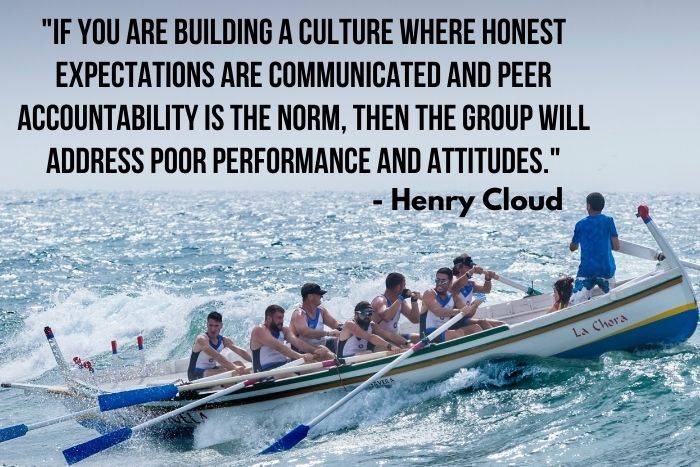Is your Family Culture helping you win?

How would you describe your business environment? Is it professional and corporate? Is it warm and friendly? Is it a family? Or maybe you don’t really have a consistent environment and it depends on who’s around that day…
I know lots of business owners who pride themselves on treating their employees like family (which often includes actual family members). And while the idea seems like a good one – with a focus on empathy and genuine caring, the reality is that this approach is likely doing significant damage to the long term success of the business and causing more problems than you realize.
Family Environment?
Don’t get me wrong – there’s a strong case to be made for purposely creating an environment where the employees are treated like family. In most cases, that means that the employees needs and wants are not only fully considered when it comes to making decisions, but often the employee’s needs are put ahead of the overall business needs.
As an example, have you ever seen a business who won’t lay anyone off (out of principle) even if the business is struggling? An even more likely example is the idea of holding onto an employee who just can’t (or won’t) do the work that’s needed simply because they are a long time employee (they’re like a member of the family…).
It’s a noble sentiment but it’s actually risky and destructive. Here are 2 big reasons why it’s a bad idea:
You’re condoning mediocrity. When you have employees who continue to get paid when they don’t do the work or don’t add value, the other employees (who presumably are doing the work and adding value) are going to notice and they are going to start asking the question ‘Why am I working so hard when I don’t have to?’.
You’re putting the entire business at risk. As a business owner, you’re responsible for the overall business success and profitability. That success pays the salary for all of your employees. When you accept, tolerate, or even encourage mediocre workers, you are putting the overall business at risk. Think about a small business with only 10 employees. If even just 1 or 2 of those employees aren’t solid, that’s 10% to 20% of your workforce who aren’t adding value. Most businesses can’t afford that kind of hit.
To be fair, you may have a business family who are all top performers and there aren’t any issues. But at some point there will be a bad hire, or a change in performance and then the challenges will begin.
An alternative model?
Another way to think about your team is to model it after a professional sports franchise. A high performing team that has a collective goal and vision of winning. That doesn’t preclude taking care of your employees and having a positive atmosphere that’s warm and caring. The difference is that the entire team is focused on the overall performance and when someone on the team isn’t pulling their weight it’s clear that a change needs to be made.
“If you are building a culture where honest expectations are communicated and peer accountability is the norm, then the group will address poor performance and attitudes.”
– Henry Cloud
In the NFL if the team’s starting running back isn’t performing, that’s going to be pretty clear… the weekly stats will tell the story… and the coach will make some changes, eventually benching the player if they can’t find improvement. And expensive players who don’t play will get cut from the team to make room for someone who can make a positive impact.
Obviously in professional sports, all of that is much higher profile and more clear cut than it is a for a typical small business. But the overall approach and mindset should be the same. If a player can’t help you win, then you must find another player and let them go.
Maybe that feels overly harsh, but the reality is that unless you’re running a non-profit (on purpose), you, as the owner, need to be looking at the bigger picture and pushing for hard choices. The reality is that most people don’t want to be a poor performer, but it’s unlikely they’ll quit a comfortable job because of it. However once they’re pushed out they’re likely to find a new job that’s a better fit for their skills and approach – and ultimately be much happier because of it.
What do you think? Are you looking at performance and constantly trying to build a winning team? Or are you protecting employees because of personal relationships, tenure with the business or some other reason? Which one makes more sense to you? We’d love to hear your thoughts.
Shawn Kinkade Kansas City Business Coach

